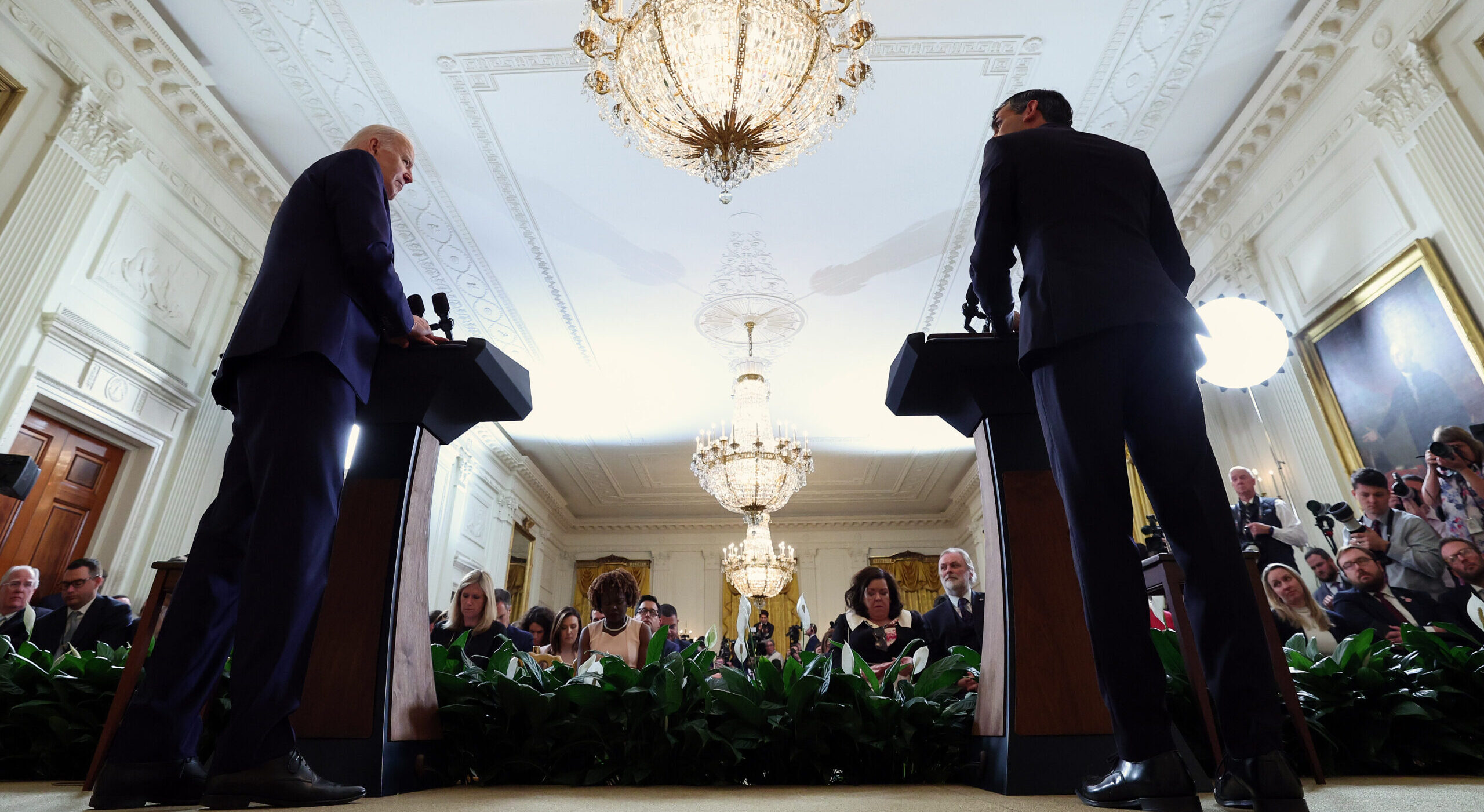Rishi Sunak and Joe Biden have reached an economic arrangement of sorts. But it is not the one that many in Britain wanted. Rather than secure a free trade arrangement — something that was widely hoped for, but never politically realistic — Britain will have to be content to hang on the coattails of America’s Inflation Reduction Act (IRA).
The two leaders came away from the meeting having agreed on an “Atlantic Declaration”. The declaration has a distinctly protectionist flavour and seems to envisage a world in which core American allies increase their ties to America and restrict their activity with America’s adversaries. Despite having become Prime Minister as a free marketeer, Sunak leaned into the protectionist rhetoric.
“Countries like China and Russia are willing to manipulate and exploit our openness, steal our intellectual property, use technology for authoritarian ends or withdraw crucial resources,” he said. “They will not succeed.”
What does Britain get out of this arrangement? Not much, frankly. Much of the declaration seems aimed to lock certain industries related to defence, nuclear, and critical minerals into country-exclusive contracts. The one clear benefit that Britain gets is access to some of the IRA’s green financing.
British producers of electric cars will be eligible for tax credits to the tune of $3,750 per vehicle, but only if they build the batteries in Britain or source them from friendly countries like Japan. But when you look under the hood of the electric car numbers, something immediately jumps out. The top export destination for British cars is the United States, which makes up 13.3% of total exports. Coming in second, however, is China, making up 8.7% of total exports. Given China’s rapid rate of growth, there is little doubt that, if free trade were allowed, China would become the largest buyer of these vehicles within a few years.
Of course, signing the Atlantic Declaration does not mean an end to trade with China. But the fact that America is offering subsidies to a growing sector in Britain that is increasingly dependent on sales to China, while simultaneously insisting that Britain engages in less trade with China, shows up the sorts of contradictions that protectionist policies can engender.
Then there is the broader question: what exactly is America’s goal with the IRA? If you are to believe the proponents, the IRA is an industrial policy designed to onshore American industry. The motivation is to deal with America’s trade deficit and stop its reliance on countries like China for so much of its manufacturing imports.
Yet, if we look at the actual numbers, this is not what the IRA does. For every $1 in tax credits and subsidies that the IRA targets at manufacturing, it spends $6 on green energy and the environment. The IRA is less a serious industrial policy than it is a repackaged Green New Deal. This is a classic case of highly-charged American domestic politics overriding stated foreign policy goals.
Britain is between a rock and a hard place here. Even putting aside the foreign policy ties between the two countries, the British economy is highly reliant on the American economy. Britain’s two largest trade partners are the United State and the European Union. But while Britain runs an enormous trade deficit with the European Union, it runs an enormous trade surplus with the United States. There is no question of Britain cleaving away from its economic relationship with America and is it currently in the position of accepting terms rather than making them.
But given the fragility of the present global situation, it is rather foolish to bet the farm on what former Democratic speaker of the House Nancy Pelosi only four years ago snarkily referred to as the “green dream”.











Join the discussion
Join like minded readers that support our journalism by becoming a paid subscriber
To join the discussion in the comments, become a paid subscriber.
Join like minded readers that support our journalism, read unlimited articles and enjoy other subscriber-only benefits.
Subscribe